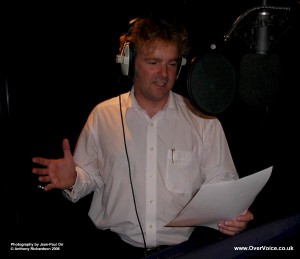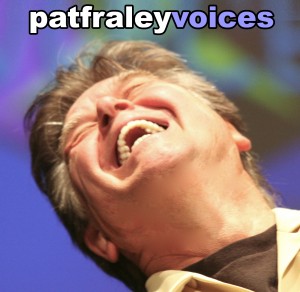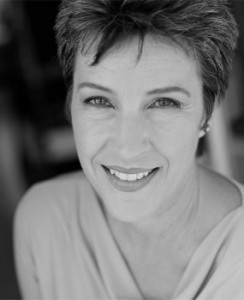5 Questions for a Professional Voice Over Talent – Elaine Singer
Today’s 5 Questions for a Professional Voice Over Talent are answered by Elaine Singer, a professional voice-over talent based in Toronto, Ontario, Canada.
1. The beginning: When did you know you wanted to be a voiceover talent; how did your career begin (please include what year it started) and then when did your passion for voiceover develop into something professional?
Unlike so many others, I never was enthralled with the idea of being in radio as a kid. Sure I listened to the radio and had my favourite DJs. I wondered – how do they know anyone is listening to them? How do they figure out what to say over such a long period of time? I was, from a fairly young age, always involved in some aspect of theatre though. Fast forward many years – I was working with an English speaking theatre group in Jerusalem and the producer/director mentioned that the English radio needed people to do commercials. This was some time in the early 80s – I can’t pinpoint an exact year – who can remember that far back anyway? So I suddenly found myself behind a mic reading commercials. It was so cool to hear myself on the radio. From there I did a jingle for an in-flight commercial for El Al. I did some long form narration as well. I had so much fun and made a little money (very little). Somehow it just petered out and I went on with my life. But it was always there at the back of my mind that I’d love to do this again. Fast forward again to the early 2000s. Now back in Toronto for a number of years, I found myself without a job at a time when jobs were very hard to come by. That little voice at the back of my mind moved forward and I started doing research on how to become a voice actor. So I started my new career and I’m just loving it. There have been bumps along the road. I had to take a part time job to make ends meet. But it’s all worth it because I am doing something I love to do.
2. What is the one thing you know now that you wish someone had told you when you first started out in voiceover?
Well, it was made clear to me right from the beginning that I wouldn’t be making sacks of money right away. That sure was true. I was also told this is a business so I can’t claim ignorance there. I guess maybe someone should have told me not to try to do everything by myself. I have spent so much valuable time creating marketing materials and websites. It was fun but I’m not sure it has served me well and it was a convenient excuse not to do the marketing I should have been doing. I’m now relinquishing control (not easily) and allowing professionals to do this for me so I can concentrate on what I have to do to move my business forward.
3. What do you see as the biggest professional or personal obstacle you face that impacts your voiceover business and how are you working to overcome it?
I’ve had a lot of naysayers in my life. Sometimes it is difficult to tune them out and it can erode self-confidence. I am trying to learn ‘selective hearing’ so I only hear the supportive and positive. Although, my persistence (see below) has turned some of those naysayers around to supporters.
4. What personal trait or professional tool has helped you succeed the most in your career so far?
I guess I’d have to say persistence. I’m not one to give up easily.
5. In your development as a voice over performer, who has been the one particular individual or what has been the one piece of performance advice (maybe a key performance trick, etc.) that you felt has had the most impact on your actual voice over performance and why?
I was having some difficulty with this one. And then I realized it wasn’t difficult at all. There were a trio of women who a long time ago gave me my voice, or showed me how to release the creativity inside through my voice: Gabriella Lev, Joyce Miller and Madeleine Rodin. The first two were with the Jerusalem Drama Workshop with which I was associated for a number of years. We did a lot of alternative and street theatre. Gabi, who arrived in Israel from Australia, showed me how to tap into emotions through the body. Joyce, originally from South Africa, was the doyenne of English theatre in Jerusalem and she encouraged me to continue on my path as an actor. She also taught me how important physicality is to finding the character. I found my way to Madeleine, originally from the States, based on a suggestion from Joyce that I find a singing teacher to learn how to control my breath and project my voice (something I had to unlearn behind the mic). These three women gave me the foundation on which I draw every day. What I learned from them is so much a part of me now that I can’t really tell you ‘how’ I do things. Although based on their teachings, I think I use my body as much as my voice when voice acting.
Here’s an example. Once, after voicing a radio commercial, the producer asked me if I had used my ‘real’ voice. I didn’t have an answer. When I’m in the booth, I don’t consciously think about what I’m doing. I just let my troika draw out the performance. I was the woman in the commercial. It was her voice Was it mine? I guess – at least one of mine or at least a part of me.
As for a performance trick – Peter you reminded me of one when we were working together recently. We used to speed speak our lines in a play to solidify them in our minds and to free ourselves of preconceived patterns. That’s a great trick for VO as you showed me. Thanks for reminding me.









